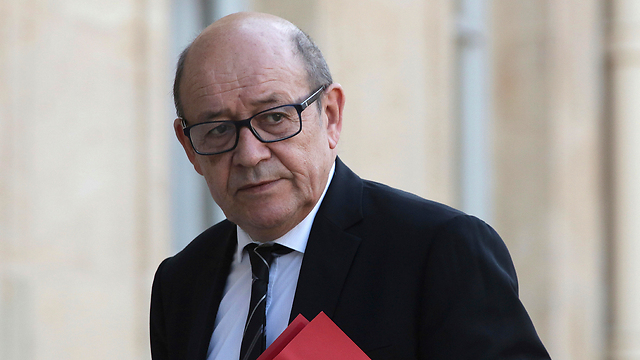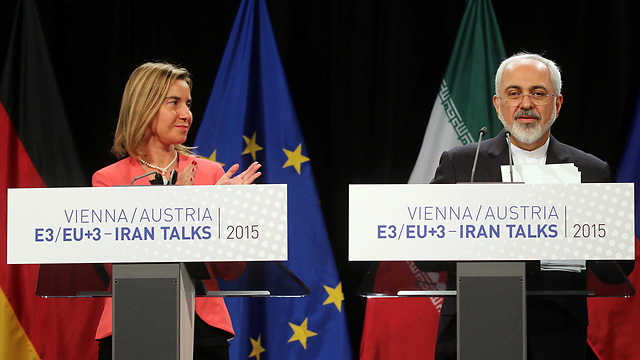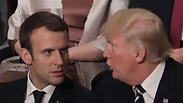

France urges tough EU approach on Iran to save nuclear accord
Responding to President Trump May 12 deadline to European allies to 'fix terrible flaws' in nuclear deal, France urges EU to consider new sanctions on Iran over its involvement in Syria, ballistic missile program in last bid to save accord.
France urged the European Union on Monday to consider new sanctions on Iran over its involvement in Syria's civil war and its ballistic missile program, as Paris tries to persuade Washington to preserve a 2015 nuclear deal with Tehran.
US President Donald Trump has given the European signatories a May 12 deadline to "fix the terrible flaws" of the deal, which was agreed under his predecessor Barack Obama, or he will refuse to extend US sanctions relief on Iran.
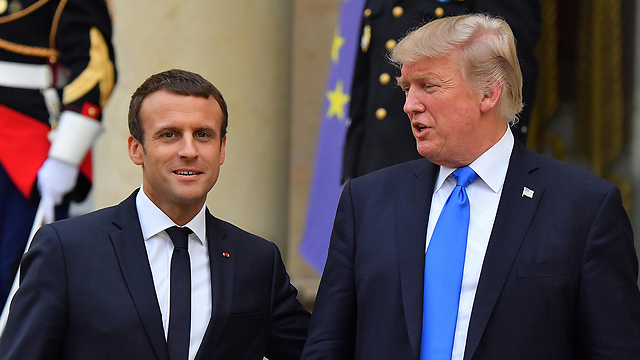
In response, the three European signatories—France, Britain and Germany—have proposed new EU sanctions targeting Iranians who support Syria's government in that country's civil war and Tehran's ballistic missile program, according to a confidential document seen by Reuters.
France 'determined to ensure Vienna accord respected'
"We are determined to ensure that the Vienna accord is respected," French Foreign Minister Jean-Yves Le Drian told reporters on arrival for talks with his EU counterparts, referring to the city where the 2015 deal was signed.
"But we must not exclude (from consideration) Iran's responsibility in the proliferation of ballistic missiles and in its very questionable role in the near- and Middle East," he said. "That must also be discussed to reach a common position."
The confidential document cites "transfers of Iranian missiles and missile technology" to Syria and allies of Tehran, such as Houthi rebels in Yemen and Lebanon's Shiite Hezbollah.
Iran's foreign ministry criticized Le Drian's comments, saying there could be no negotiations over what Iran says are purely defensive weapons.
"We were hopeful that after his recent visit to Tehran and negotiations with Iranian officials, he would understand the realities of the Islamic Republic's defense policies," Fars news agency quoted Iranian spokesman Bahram Qasemi as saying.
New sanctions must be approved by all 28 member states
The United States has unilateral sanctions on Iran over missile tests it says violate a UN resolution against developing weapons capable of carrying nuclear warheads.
Any EU-wide measures would be the first significant punitive steps since the bloc lifted broad economic sanctions on Iran last year following the 2015 accord to curb Tehran's nuclear ambitions for at least a decade.
But new sanctions would need the support of all 28 EU member states and could complicate new business deals with Iran.
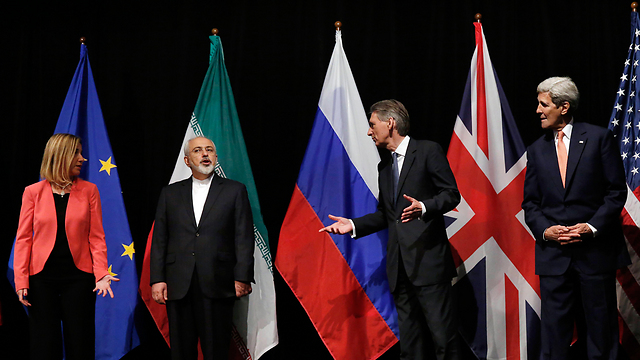
Some EU countries, including Italy and Greece, are keen to rebuild a business relationship that once made the EU Iran's top trading partner and its second-biggest oil customer.
US Senator Bob Corker, chairman of the Senate Foreign Relations Committee, said on Sunday he expected Trump to pull out of the nuclear agreement in May unless European governments "really come together on a framework."
EU foreign policy chief Federica Mogherini, who chaired the final stages of the nuclear negotiations between Iran and Britain, China, France, Germany, Russia and the United States, stressed that there was no formal EU position on new sanctions.
But other foreign ministers in Brussels hinted at discussions that diplomats said were underway in EU capitals.
"We have to explore all the possible measures to have the same type of pressure as we had in the nuclear dossier," Belgium's Foreign Minister Didier Reynders told reporters.














